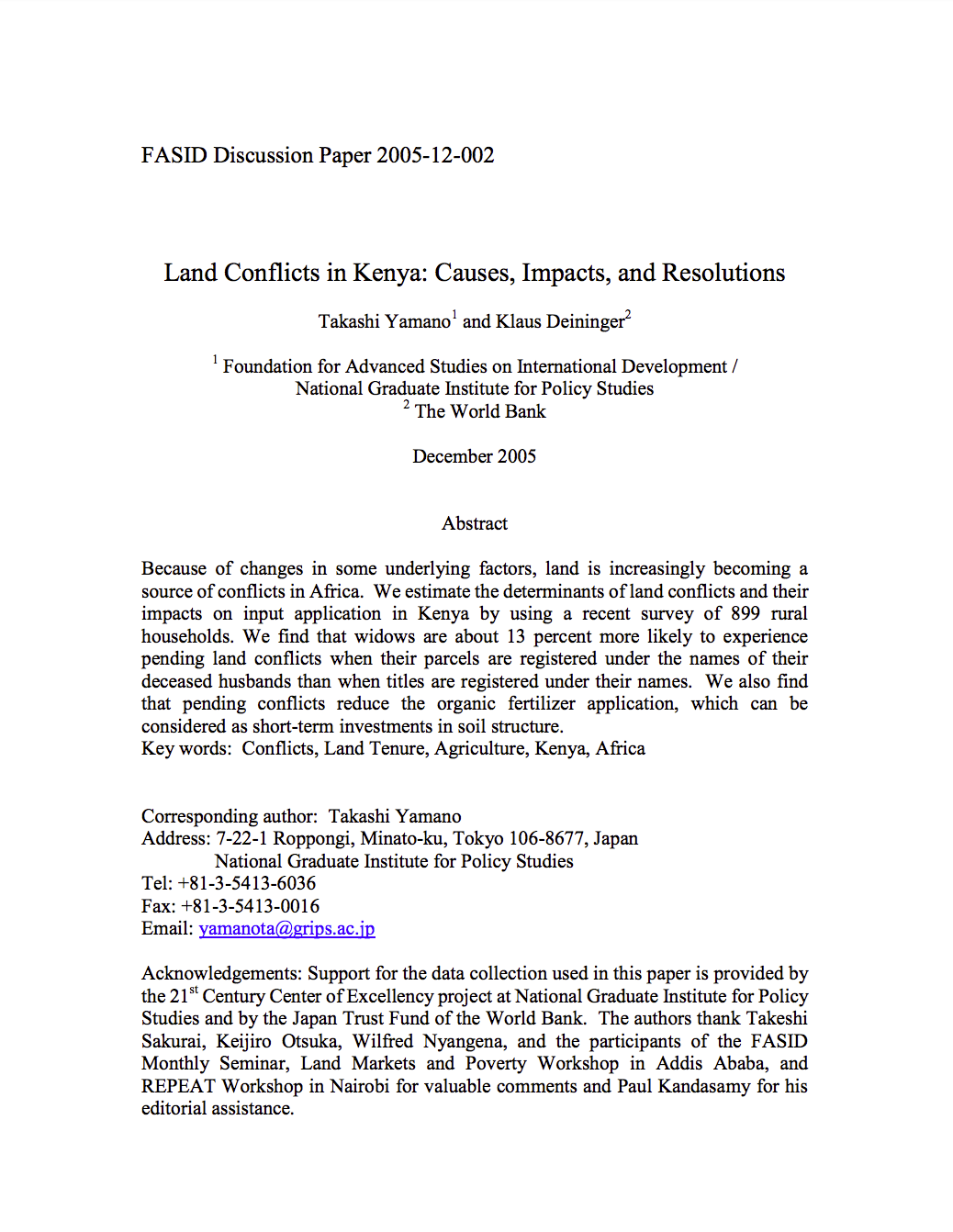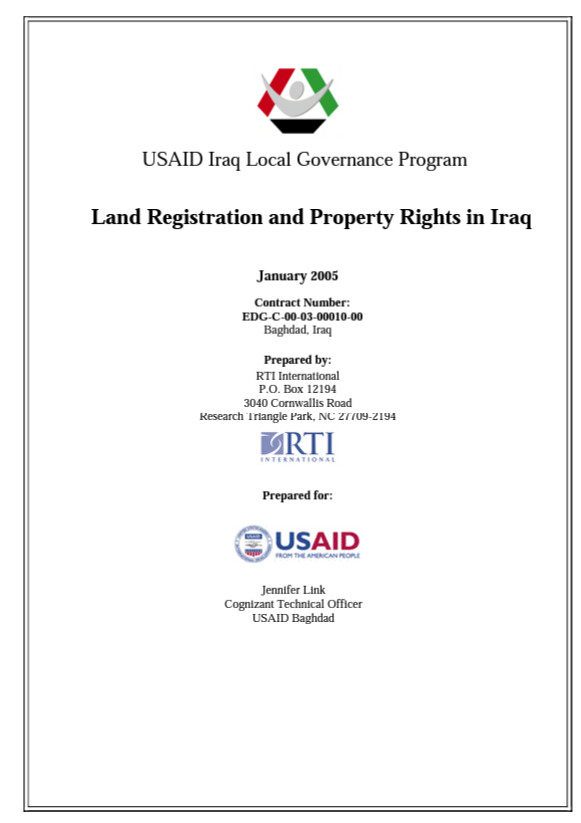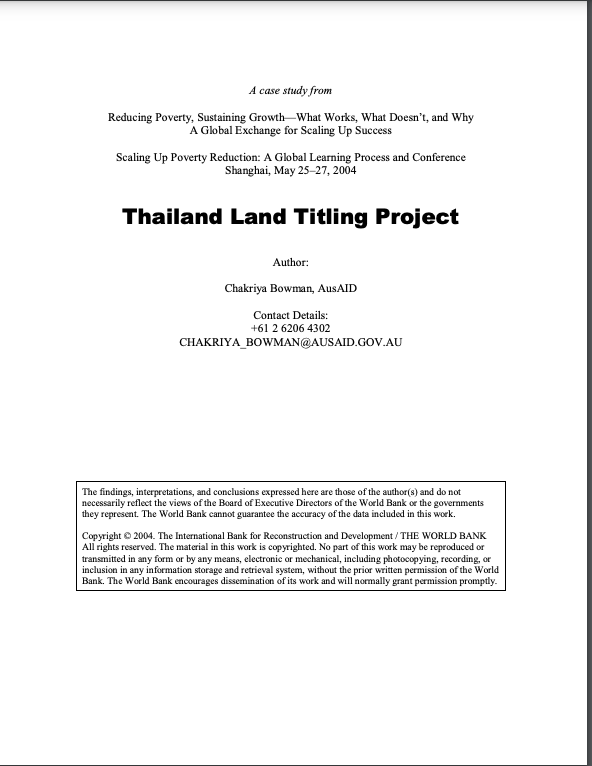Land Policy and Farming Practices in Laos
The government of Laos has identified the eradication of poverty as a priority. Given the primarily agricultural character of the country, it has selected land reform as a core policy to reach this goal. The policy has two major aims: to increase land tenure security in order to encourage farmer involvement in intensive farming, and to eliminate slash-and-burn agriculture to protect the environment in a country still rich in forest resources.






